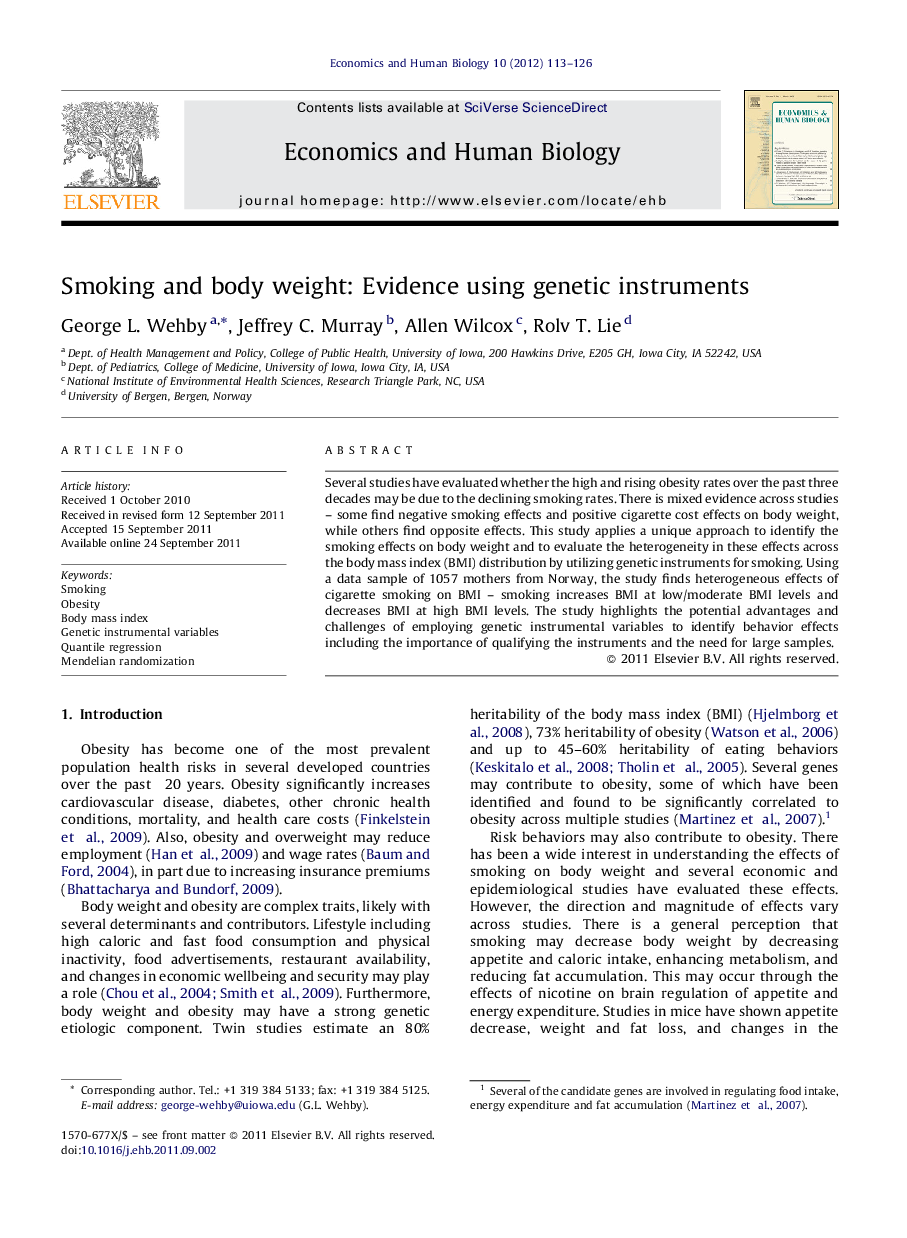| Article ID | Journal | Published Year | Pages | File Type |
|---|---|---|---|---|
| 5057168 | Economics & Human Biology | 2012 | 14 Pages |
Several studies have evaluated whether the high and rising obesity rates over the past three decades may be due to the declining smoking rates. There is mixed evidence across studies - some find negative smoking effects and positive cigarette cost effects on body weight, while others find opposite effects. This study applies a unique approach to identify the smoking effects on body weight and to evaluate the heterogeneity in these effects across the body mass index (BMI) distribution by utilizing genetic instruments for smoking. Using a data sample of 1057 mothers from Norway, the study finds heterogeneous effects of cigarette smoking on BMI - smoking increases BMI at low/moderate BMI levels and decreases BMI at high BMI levels. The study highlights the potential advantages and challenges of employing genetic instrumental variables to identify behavior effects including the importance of qualifying the instruments and the need for large samples.
⺠Smoking may have heterogeneous effects on low versus high body weight quantiles. ⺠Genetic instruments may be useful for identifying behavioral effects. ⺠Instruments should be validated through literature review and statistical tests. ⺠Replication with large samples and strong instruments is needed. ⺠The study highlights the advantages and challenges of genetic instruments.
